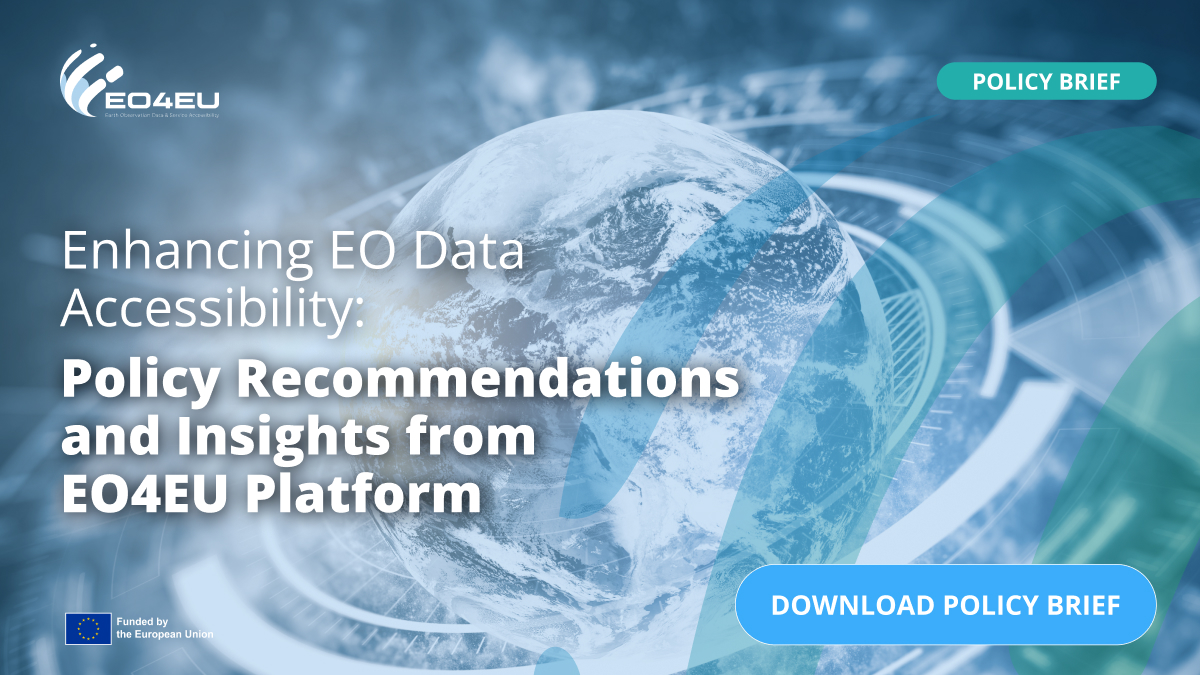Enhancing EO Data Accessibility: Policy Recommendations and Insights from EO4EU Platform
The EO4EU project has released its first policy brief featuring key recommendations to improve the accessibility to EO data based on the experience obtained from the EO4EU Platform development.
With a wide range of EO data sources, Europe has an extensive potential to innovate and advance research in multiple fields. Nevertheless, there is a number of challenges that hinder the advancement of EO data accessibility. These challenges include data fragmentation, limited coordination, technical complexities.
With the aim of facilitating access to EO data, the EO4EU project set the objective of developing the EO4EU Platform streamlining access, enhancing interoperability, and integrating cutting-edge technologies like AI, machine learning, and immersive tools to improve the usability of EO data for a broader range of users.
Through user surveys and a set of industry-specific use cases, the EO4EU Platform has demonstrated its potential to benefit such sectors as agriculture, healthcare, environmental monitoring, and disaster management. These use cases have highlighted critical requirements such as scalability, real-time data processing, and seamless integration with existing systems, while underlining the need for a user-friendly, accessible platform solution that empowers diverse stakeholders.
On the basis of the experience and insights from the EO4EU Platform development and the use cases implementation, the EO4EU team of experts has proposed specific recommendations to reduce EO data fragmentation and boost its uptake. By leveraging these recommendations, Europe can fully unlock the transformative potential of EO data, strengthening informed decision-making in numerous industries and sectors.
Discover the policy recommendations and more insights to fully leverage the broad spectrum EO data in the EO4EU policy brief!
